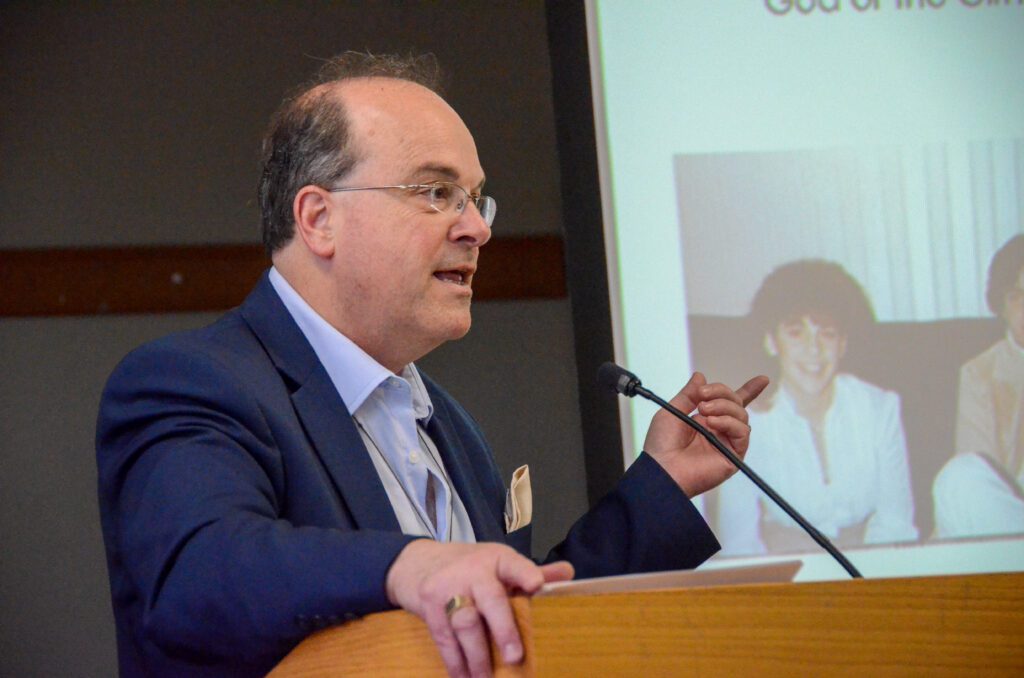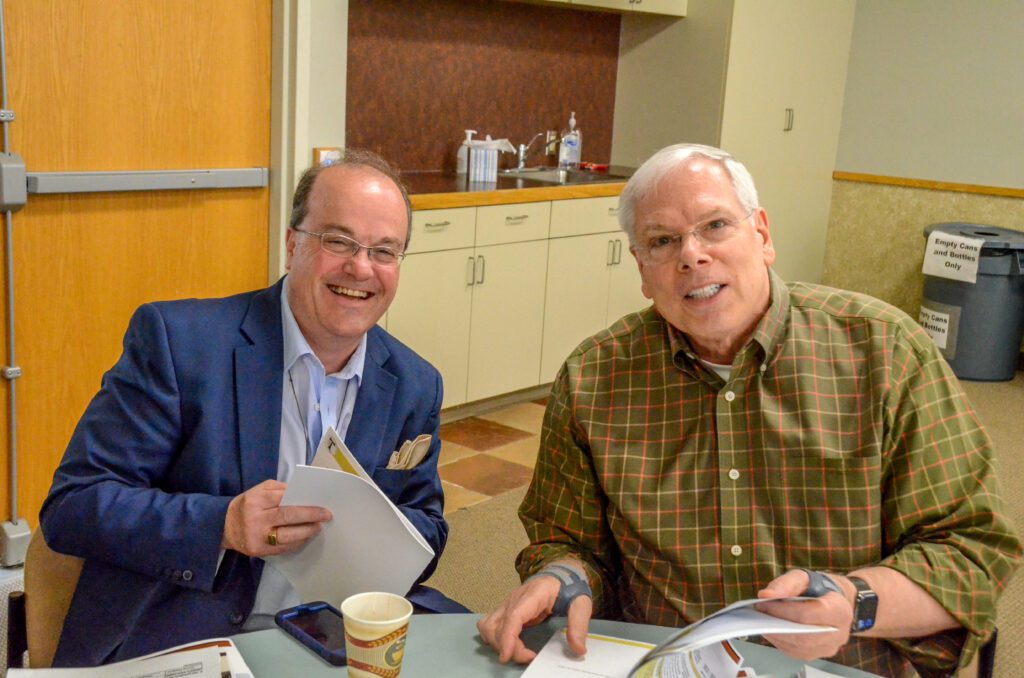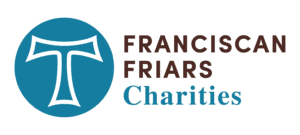
In the world of sports, when a game is at a critical juncture, players are ultimately defined by the choices they make. Sports analogies may be cliché, but this one begs a good question: When one stands at a critical juncture in one’s personal and professional life, what choices does one make, and how does that define a person’s role in the larger context of life?
David O’Brien, OFS, CFA, and Chief Financial Officer of the Province of Our Lady of Guadalupe, once stood at such a crossroads, looked both ways, and boldly paved a new road. In his late 30s, he went through a deepening—a point in his life when he became more serious about his faith.
At the same time, his work-life balance felt a bit off. “At that point, I got very good advice from a friend who asked me, ‘Why don’t you look at trying to work in an area where you can integrate what you do professionally with who you aspire to be?’ That spoke to me because it just meant the faith journey could be a part of what I was doing.”
The revelatory power of his friend’s question led David to interview with several Catholic entities, including the Franciscan friars.
“One of the things that I find very relatable about the Franciscan friars is that they are very approachable and relational. They have all the elements and institutional constructs of the Catholic Church, but I find the Brothers to be refreshingly a lot less institutionalized and clericalized. They’re easier to get to know. Their humanity is appropriately reflective and has a beautiful emphasis on St. Francis seeing Jesus in his incarnate form as a fully human being. That was very attractive to me.”

During his formative years, Franciscan values also proved attractive to David without him fully realizing it.
“My parents are traditional Catholics. As I was growing up, they had a lot of devotion to Saints, and many of those Saints were Franciscan. I believe that part of the reason I was led to the Franciscans was through their prayers over the years—even before I was born!”
David’s first experiences with the Franciscan friars were unique in that not everyone can work shoulder-to-shoulder with them for eight (or more) hours a day.
“I got the job, and from day one, I had the chance to work with the friars up close and learned about them,” recalls David. “I experienced them on a day-to-day basis, and that alone was my formation. Looking back, I may not have thought of it in that context at that time, but experiencing that interaction had a profound influence on me. One thing that stood out right away: when a friar is speaking to you, they’re very good at focusing on you and they really tune in to you. They’re very gifted at treating the person right in front of them with dignity. That sticks with you!”
The resonance of such kindness and consideration inspired David to devote more of himself to the Franciscan Way.
“I wound up coming to a place where I thought, “I’ve been blessed and brought along. I want this to be more of an expression publicly of what I’ve already been doing by virtue of the gifts of the friars,” shares David. “One of the people on our investment committee in Cincinnati had semi-retired and had become a secular and that was a clincher for me. So, I went on that journey, studied and met with a fraternity, and ultimately professed as a Secular Franciscan in September of 2022.”
“It’s phenomenal that the Franciscans are one of the only formal religious orders within the Catholic Church that you can join as a secular tertiary,” he continues. “I am officially part of the Franciscan order, and that’s reflective of St. Francis’ spiritual genius and insight—that we’re all brothers and we shouldn’t be divided whether you’re ordained, not ordained, male or female.”
As the acting CFO of the Province of Our Lady of Guadalupe in October 2023, David found himself at the point where five legacy provinces merged into one. In this case, “legacy” provinces describe long-standing, independent entities with their own ways of doing things.
Creating something new while combining five independent entities with firmly established processes isn’t hard, right?
“There’s a tremendous amount of work that’s ongoing for a number of reasons,” says David. “A typical merger in the secular world of two large organizations will take at least a couple of years— actually five years post-merger is the average length of time that an Office of Mergers and Integration Services operates. The regional legacy provinces weren’t the size of IBM or other publicly traded companies but were very unique as religious institutes in that each of them had their own sub-cultures, and each remained independent from a common and civil law perspective right up until day one of the new province.”
Religious orders are considered private organizations, not state actors. They have the freedom to make decisions regarding their internal structure, membership, and religious practices, so long as these actions do not violate the law.
“We had five different governing bodies running independently right up until October 17 of 2023,” adds David. “If you think of accounting as a language in which we express economic activity, you’re taking five different languages, finding similarities and differences, and creating a new language. In accounting terms, you would map the pre-existing languages onto the new language. Each entity must then learn the new language.”
While learning a new language is highly rewarding, it’s a long-term process that requires patience and dedication.
“You’re also dealing with practices that have grown out of cultural differences,” says David. “So, the practices are at times very different; therefore, you have people used to doing things a certain way. And now you’re asking them to learn something new. The change management element has been challenging, but everyone—the friars and the staff—is doing the best they can.”
With David O’Brien as the CFO of the Province of Our Lady of Guadalupe, the Franciscan friars have a colleague with a sharp mind, Franciscan heart, and the unique ability to integrate the wildly diverse traffic found at a crossroads. There’s nothing cliché about David’s day-to-day work with the Franciscan friars. Though it’s tempting to encapsulate it with the phrase “Faith at Work,” perhaps it’s better to go with “Faith and Work.”

